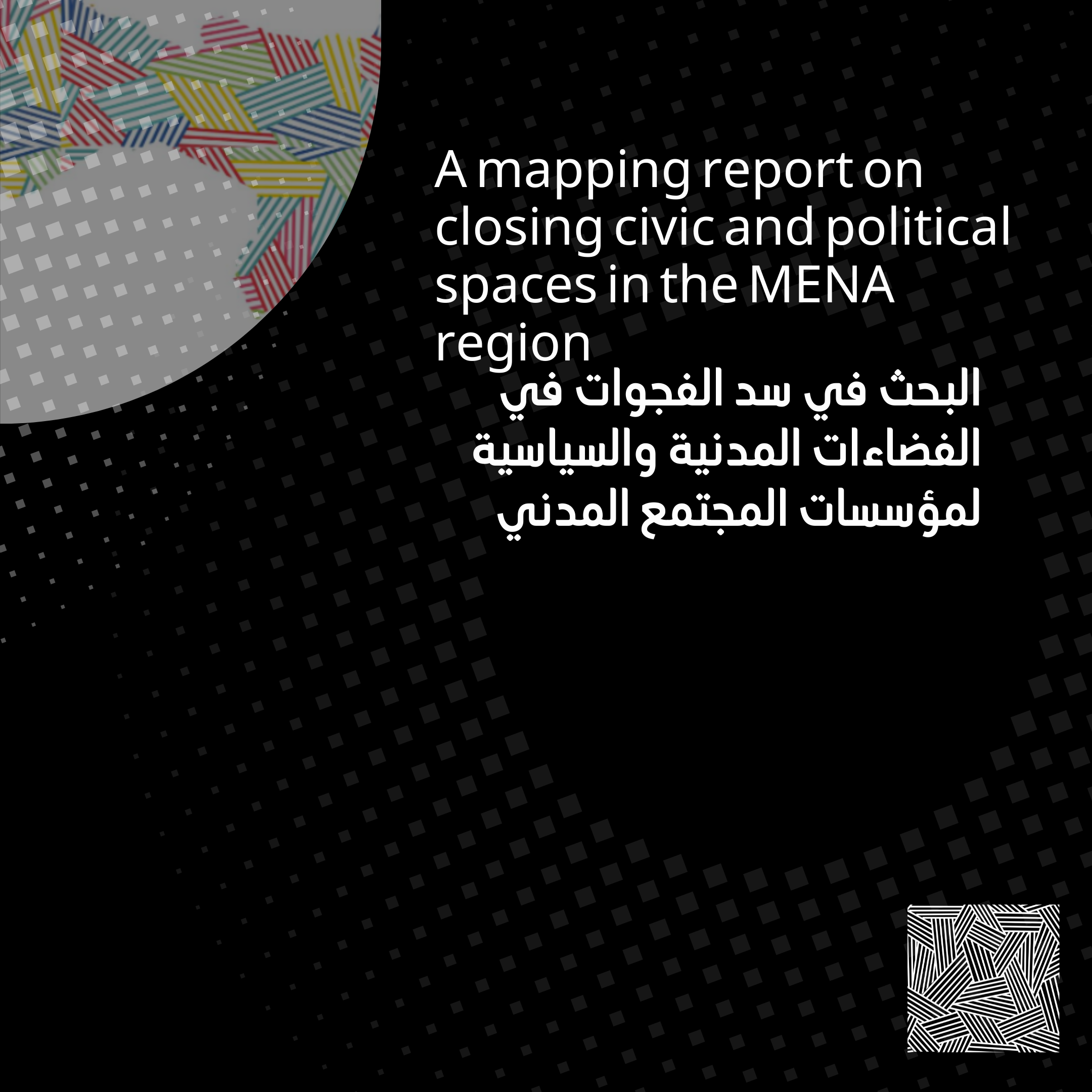
The MENA Hub and in partnership with Partners-Jordan worked on the mapping of CSOs advocating and campaigning in the MENA region. The aim of this mapping and assessment is to: Identify CSOs focusing on advocacy and campaigning in the region around issues related to the closing of civic spaces; Identify CSOs that promote non-violent strategies and tactics for social change; Mapping of resources available in Arabic for non-violent strategies and tactics; Identify successful advocacy and campaigning actions, as well as the development of tools and resources around issues related to the closing of civic spaces; Identify challenges and lessons learned by CSOs in their campaign work.
The Mapping report is available in English, and can be downloaded for free from the I4C MENA Knowledge Souk Resources directory.
Results
hrough thorough assessment instruments, including questionnaires, interviews, and focus groups, among others. The focus was on local, national and regional CSOs, initiatives, think tanks, community-based organizations, and civil society activists, especially women and youth.
The report consists of 4 main sections, in which the research team outlines major learning and recommendation from data collection and desk research. The first section is around the developed mapping and analysis framework for the research through which the research team aimed to develop a learning document on using power analysis as a framework to identify opportunities and challenges to address shrinking civic space.
The second section of this report is to explore regional analysis and findings around both advocacy capacities of organizations as well as regional views on closing civic space. This is in addition to a macro analysis of the trends of shrinking civic spaces.
Section 3 entails the country-level analysis based on data collected from Tunisia, Morocco, Jordan, Lebanon, and Palestine through in-depth interviews that took place in each of these countries. It briefly explains the status of civic freedoms in each country based on secondary data. It also puts together recommendations for programming and capacity development in each country. It also highlights trends across the different countries such as the gap between local and national CSOs in Tunisia, the challenge of building a constituency to shape policies in Morocco, the good examples for national networks in Jordan and Lebanon to address gender-based violence, and the long term labor of Palestinian CSOs to shift from charitable organizations to politically active organizations that work on addressing power imbalances.
Finally, section 4 of the research brings together the overall recommendations for programming around campaigning and advocacy in the region based on both regional and country analysis. The final recommendations of these exercises are outlined around 4 areas: 1) developing learning for advocacy in the region, 2) capacity development interventions, 3) priorities for advocacy programming, and 4) a proposed program framework to address shrinking political space at national and regional levels.
The Mapping was launched through a kick-off webinar that included Network members.
Challenges
Lack of updated regional mapping tracking CSOs advocacy initiatives on the closing of Civic Space
Why is this innovative
A mapping of CSOs working on advocacy issues in MENA was officially completed in 2019. The research was conducted in order to examine the underlying factors that affect or limit CSO capacity to initiate effective advocacy. The research included a comprehensive study of CSO advocacy capacity as well as an analysis of the power structures that restrict political or civic spaces within which CSOs operate. The mapping serves as a resource for CSOs as they plan and implement advocacy campaigns and will inform future hub activities.